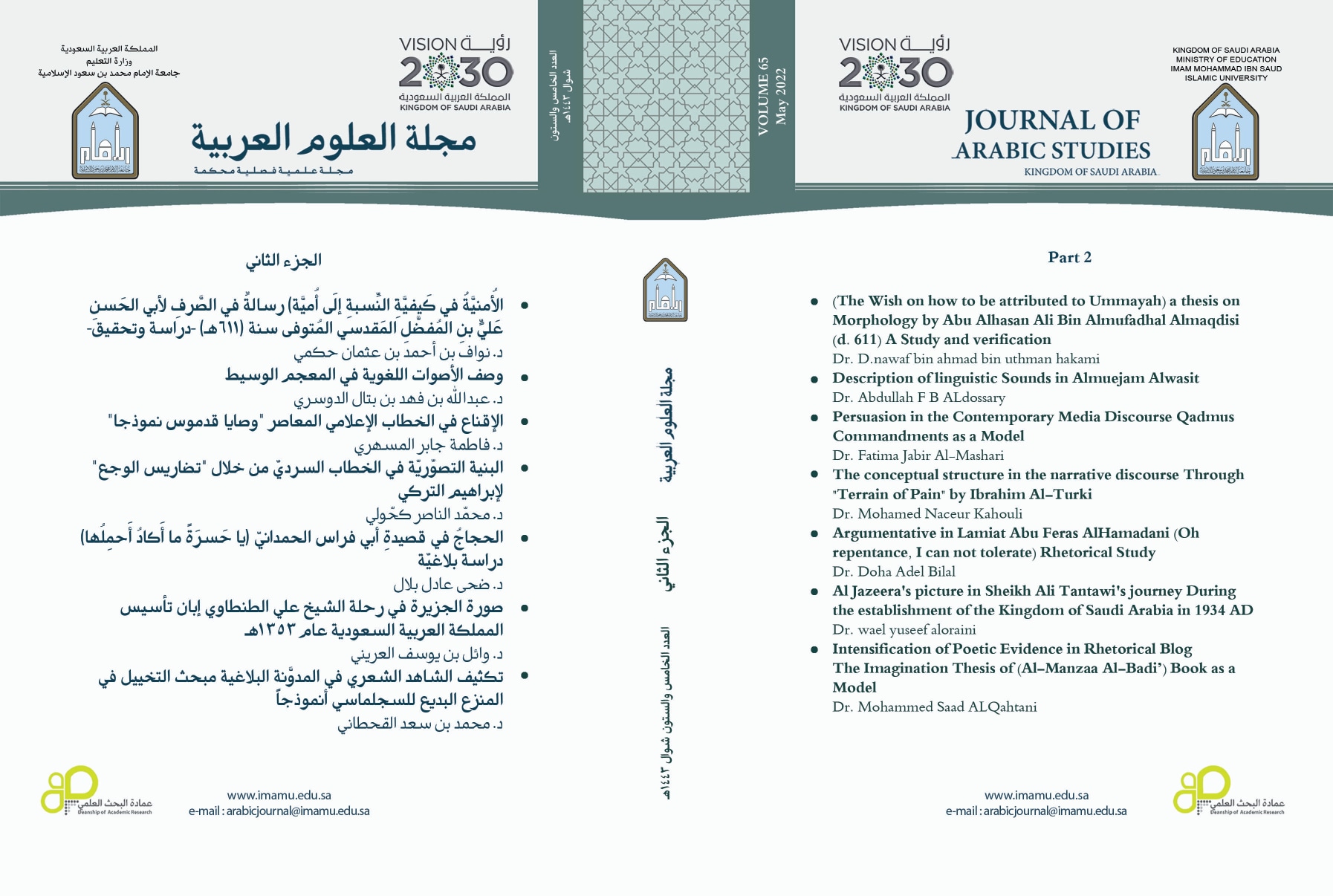Persuasion in the Contemporary Media Discourse Qadmus Commandments as a Model
Keywords:
Persuasion – Media discourse - ContextAbstract
This paper seeks to discover the formation of the contemporary media discourse in the Qadmus commandments (The Poet Fawwaz Al-Laaboon) via modern digital communication tools (Twitter-Telegram). Through the study of context elements and linguistic systems that persuasion has sought their support in his commandments and formed an argumentative structure whose purpose is to influence and persuade. It is based on the fact that commandments discourse is a discourse directed from an addresser to an addressee through various persuasive formations that follow communication elements. They generally make a media discourse represented by the new rhetorics, which Perelman expanded its concept to include philosophical and humanities sciences, the language of daily life, and the conversations of people in various fields. This paper discusses persuasion on two topics. Topic One: The role of context elements in persuasion, context elements include the addresser, the addressee, and common knowledge. Topic Two: linguistic persuasion that is represented in claims, arguments of all kinds, and the argumentative ladder with its linguistic mechanisms, the key of which are links and factors. That should be preceded by an introduction that includes the significance of the topic, its goals, research problem, method, and concepts that are followed by a Conclusion. This conclusion includes prominent results reached by this paper supported by a pragmatic approach. It is interested in the study of the relationship of signs to their users and their interpreters




